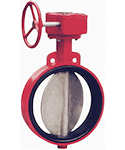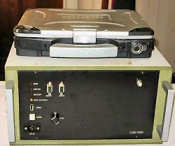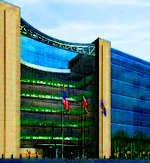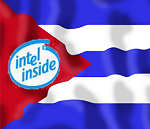 Houston-based FMC Technologies recently agreed to pay $610,000 to settle charges that it had exported butterfly valves on 78 occasions without required export licenses from the Bureau of Industry and Security (“BIS”). This ouch-sized fine, which followed a voluntary disclosure by FMC, is almost twice the $304,141 value of the exported valves. BIS, perhaps hoping not to scare other people thinking about voluntary disclosures, didn’t actually provide the total value of the exports in its schedule of exports but, of course, Export Law Blog whipped out its calculator to total up the value of the individual shipments as a unique service to its readers.
Houston-based FMC Technologies recently agreed to pay $610,000 to settle charges that it had exported butterfly valves on 78 occasions without required export licenses from the Bureau of Industry and Security (“BIS”). This ouch-sized fine, which followed a voluntary disclosure by FMC, is almost twice the $304,141 value of the exported valves. BIS, perhaps hoping not to scare other people thinking about voluntary disclosures, didn’t actually provide the total value of the exports in its schedule of exports but, of course, Export Law Blog whipped out its calculator to total up the value of the individual shipments as a unique service to its readers.
I would hazard that pipe and valve exports cause more problems for exporters than almost any other item. This is, I think, because it doesn’t occur to most people that a valve or pipe could be export-controlled. Supercomputers, yes; pipes, er, not so much.
But pipes and valves are indeed controlled by ECCN 2B350, depending on the composition of the surfaces that come in contact with the fluids or gases flowing through the pipe or valve. The two most common surfaces that cause a pipe or valve to become controlled are, first, alloys (usually stainless steel) with more than 25% nickel and 20% chromium and, second,Teflon or other fluoropolymers. FMC’s catalog of its butterfly valves indicates that Teflon was one of the optional materials for the O-ring and the valve disk. (Stainless steel 351 was also available but its nickel and chromium percentages, 14% and 18% respectively, fall below the parameters for ECCN 2B350.)
Needless to say, the value of these particular controls is somewhat dubious. Teflon-coated valves are widely available from pipe and valve manufacturers throughout the world. A quick Google search shows a number of sources of supply for teflon-coated valves and pipes. Like this company in Singapore or this one in China. The newly-announced top-to-bottom review of export controls would do well to start with review of these pipe and valve controls.
304141

 Posted by
Posted by  Category:
Category: 


 An earlier
An earlier  This EETimes
This EETimes  A
A 

